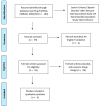Pharmacogenomics of Lithium Response in Bipolar Disorder
- PMID: 33804842
- PMCID: PMC8063790
- DOI: 10.3390/ph14040287
Pharmacogenomics of Lithium Response in Bipolar Disorder
Abstract
Despite being the most widely studied mood stabilizer, researchers have not confirmed a mechanism for lithium's therapeutic efficacy in Bipolar Disorder (BD). Pharmacogenomic applications may be clinically useful in the future for identifying lithium-responsive patients and facilitating personalized treatment. Six genome-wide association studies (GWAS) reviewed here present evidence of genetic variations related to lithium responsivity and side effect expression. Variants were found on genes regulating the glutamate system, including GAD-like gene 1 (GADL1) and GRIA2 gene, a mutually-regulated target of lithium. In addition, single nucleotide polymorphisms (SNPs) discovered on SESTD1 may account for lithium's exceptional ability to permeate cell membranes and mediate autoimmune and renal effects. Studies also corroborated the importance of epigenetics and stress regulation on lithium response, finding variants on long, non-coding RNA genes and associations between response and genetic loading for psychiatric comorbidities. Overall, the precision medicine model of stratifying patients based on phenotype seems to derive genotypic support of a separate clinical subtype of lithium-responsive BD. Results have yet to be expounded upon and should therefore be interpreted with caution.
Keywords: Genome-Wide Association Study (GWAS); bipolar disorder; lithium; personalized medicine; pharmacogenomics; predictive models.
Conflict of interest statement
The authors declare no conflict of interest.
Figures
Similar articles
-
Lithium, Stress, and Resilience in Bipolar Disorder: Deciphering this key homeostatic synaptic plasticity regulator.J Affect Disord. 2018 Jun;233:92-99. doi: 10.1016/j.jad.2017.12.026. Epub 2017 Dec 22. J Affect Disord. 2018. PMID: 29310970 Review.
-
The Pharmacogenomics of Bipolar Disorder study (PGBD): identification of genes for lithium response in a prospective sample.BMC Psychiatry. 2016 May 5;16:129. doi: 10.1186/s12888-016-0732-x. BMC Psychiatry. 2016. PMID: 27150464 Free PMC article. Clinical Trial.
-
Exploring lithium's transcriptional mechanisms of action in bipolar disorder: a multi-step study.Neuropsychopharmacology. 2020 May;45(6):947-955. doi: 10.1038/s41386-019-0556-8. Epub 2019 Oct 25. Neuropsychopharmacology. 2020. PMID: 31652432 Free PMC article.
-
Molecular mechanisms underlying mood stabilization in manic-depressive illness: the phenotype challenge.Am J Psychiatry. 1999 Oct;156(10):1506-14. doi: 10.1176/ajp.156.10.1506. Am J Psychiatry. 1999. PMID: 10518159 Review.
-
A genetic network model of cellular responses to lithium treatment and cocaine abuse in bipolar disorder.BMC Syst Biol. 2010 Nov 19;4:158. doi: 10.1186/1752-0509-4-158. BMC Syst Biol. 2010. PMID: 21092101 Free PMC article.
Cited by
-
Modulation of Neuronal Excitability and Plasticity by BHLHE41 Conveys Lithium Non-Responsiveness.bioRxiv [Preprint]. 2024 Jul 25:2024.07.25.605130. doi: 10.1101/2024.07.25.605130. bioRxiv. 2024. PMID: 39372797 Free PMC article. Preprint.
-
Focal adhesion is associated with lithium response in bipolar disorder: evidence from a network-based multi-omics analysis.Mol Psychiatry. 2024 Jan;29(1):6-19. doi: 10.1038/s41380-022-01909-9. Epub 2023 Mar 29. Mol Psychiatry. 2024. PMID: 36991131 Free PMC article.
-
Methylomic Biomarkers of Lithium Response in Bipolar Disorder: A Proof of Transferability Study.Pharmaceuticals (Basel). 2022 Jan 23;15(2):133. doi: 10.3390/ph15020133. Pharmaceuticals (Basel). 2022. PMID: 35215246 Free PMC article.
-
What Patients with Bipolar Disorder Need to Know about Lithium.Pharmaceuticals (Basel). 2024 Sep 17;17(9):1223. doi: 10.3390/ph17091223. Pharmaceuticals (Basel). 2024. PMID: 39338385 Free PMC article. Review.
-
A Comparison of Different Approaches to Clinical Phenotyping of Lithium Response: A Proof of Principle Study Employing Genetic Variants of Three Candidate Circadian Genes.Pharmaceuticals (Basel). 2021 Oct 23;14(11):1072. doi: 10.3390/ph14111072. Pharmaceuticals (Basel). 2021. PMID: 34832854 Free PMC article.
References
-
- Oedegaard K.J., Alda M., Anand A., Andreassen O.A., Balaraman Y., Berrettini W.H., Bhattacharjee A., Brennand K.J., Burdick K.E., Calabrese J.R., et al. The Pharmacogenomics of Bipolar Disorder Study (PGBD): Identification of Genes for Lithium Response in a Prospective Sample. BMC Psychiatry. 2016;16:129. doi: 10.1186/s12888-016-0732-x. - DOI - PMC - PubMed
Publication types
Grants and funding
LinkOut - more resources
Full Text Sources
Other Literature Sources



